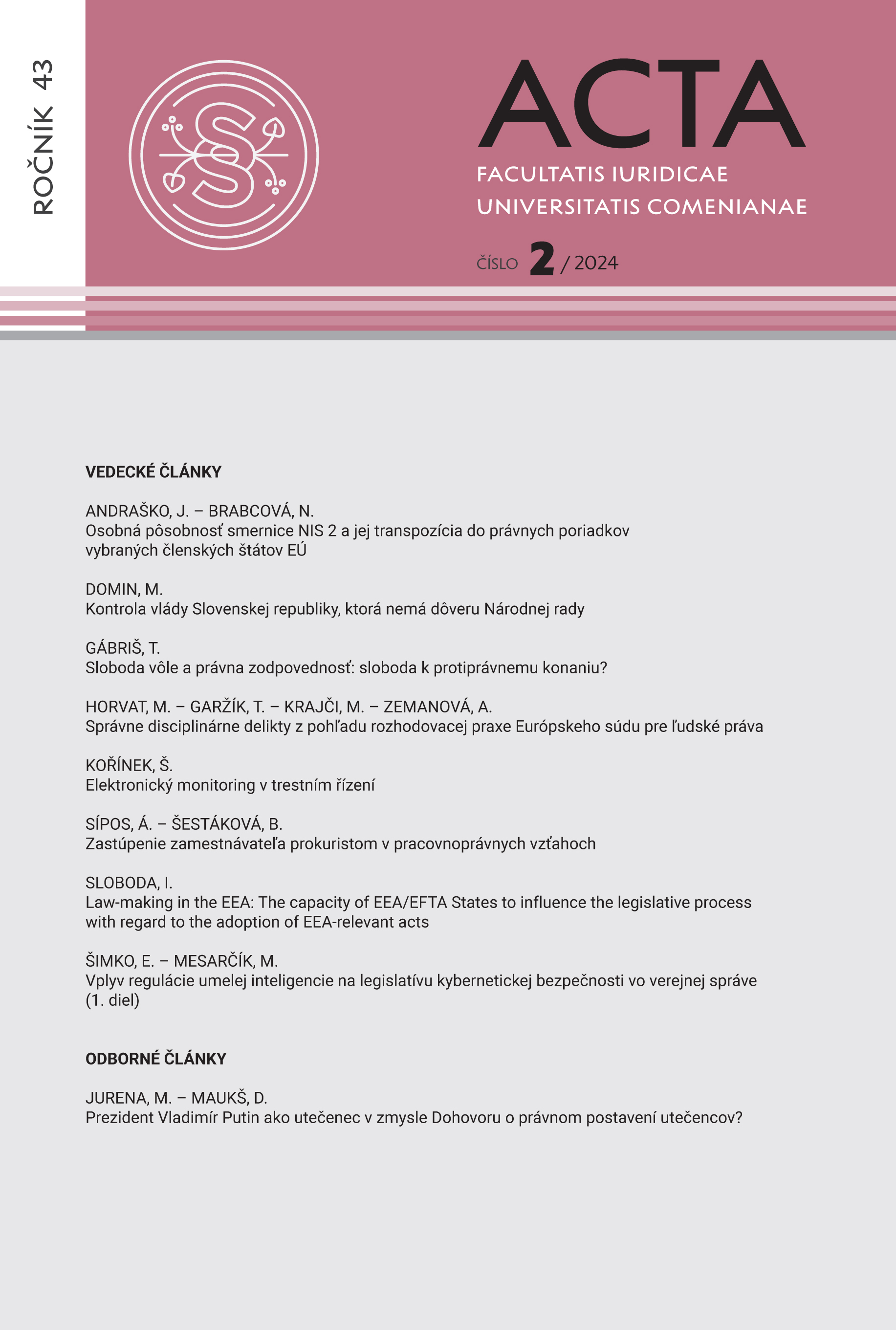Freedom of will and legal liability: freedom to act unlawfully?
DOI:
https://doi.org/10.62874/afi.2024.2.03Keywords:
freedom of will, legal liability, unlawful conduct, cognitive sciencesAbstract
Free will represents a fundamental prerequisite for so-called subjective responsibility, which is based on the volitional relationship of the agents to their actions and to the results of those actions. If individuals did not possess free will, they would not be able to make decisions freely about how to act, and they could not be held subjectively liable for their actions; their actions would necessarily be dependent (determined, conditioned) on other circumstances that could fundamentally originate outside the agents themselves. In this context, Aristotle's contribution to the issues of free will and responsibility for one's own actions is particularly emphasized as being the basis of this modern approach. The existence of free will, despite its general acceptance as a fundamental principle for deriving liability for one's own actions, is nevertheless sometimes questioned even today, based on several experiments from the field of cognitive sciences – among all examples, Libet's experiment and related control tests can be mentioned, which aim to demonstrate that the electrical impulses in the brain associated with certain physical activities precede the subject’s consciousness and will to act, which calls into question whether we are truly conscious agents of our actions. Even in this case, however, theorists conclude that humans still possess free will – specifically at least in the form of the ability to control, manage their actions, or not act as the brain impulses 'suggest' (expressed in the form of an English wordplay: we have free won’t rather than free will).
Downloads
Published
Issue
Section
License
Copyright (c) 2024 Acta Facultatis Iuridicae Universitatis Comenianae

This work is licensed under a Creative Commons Attribution-NonCommercial-NoDerivatives 4.0 International License.

